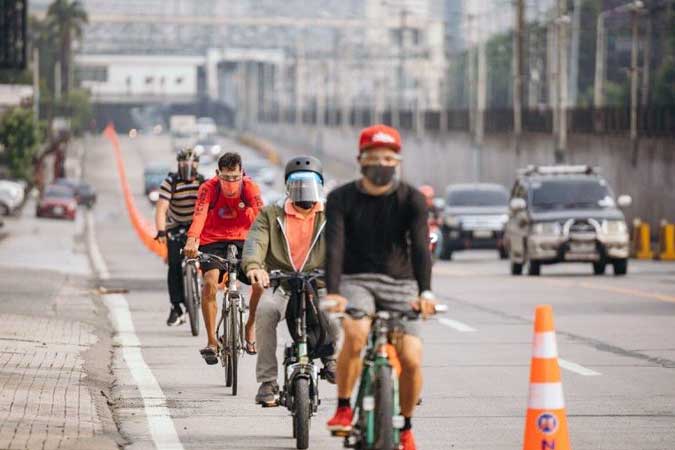
About one in four Filipino households nationwide owned bikes as of April 2022, according to a Social Weather Stations (SWS) survey — up from one in five in May 2021.
The “Bicycle Ownership, Usage, and Attitudes of Filipino Household Heads on Cycling as Transportation” survey also found that there were more bicycle owners than car owners nationwide. The ratio of bike-to-car owners was 5:1 in the National Capital Region (NCR), 4:1 in areas in Luzon outside Mega Manila, 2:1 in Visayas, and 3:1 in Mindanao.
According to the survey, three out of 10 households are cycling households, or households that have at least one household member who uses a bike for either essential or recreational activities.
Cycling households rose to 7.3 million in April 2022 from 6.2 million in May 2021 while non-cycling households decreased to 18.2 million from 19 million in the same period.
“If you ask me, this is good news,” said Christian Michael C. Entoma, a senior survey specialist at SWS, at an Aug. 24 event. “[This means] more household members are using bikes.”
Cycling households can further be broken down into those that own bicycles (23% or an estimated 5.8 million) and those that use borrowed bicycles (6% or an estimated 1.5 million). Both groups did essential and recreational activities at a 1:1 ratio.
Essential activities include grocery store runs and going to and from work. Recreational activities include sightseeing and exercising.
Three of out four (or 75%) of household heads, moreover, agreed with the statement “cycling is just as effective as other types of transportation in going to different places.” Meanwhile, 80% or four out of five agreed with the statement that “more people will use bicycles as transportation if the roads will be safer for them.”
Philippine roads now obey the “law of the jungle,” which allows cars to bully cyclists and pedestrians alike, according to Mr. Entoma. “Dadaanin sa laki [Might makes right],” he said.
According to Robert Y. Siy, Jr., co-convenor of Move As One Coalition, which advocates for inclusive public transportation in the Philippines, the survey is a “loud and clear” message to policymakers.
“Very often the mindset is that the road is for the car, and any residual space is for pedestrians and cyclists,” he said. “We need to make the argument that our roads need to be democratized… [The survey] is an evidence-based argument for why we need safer spaces for cycling.”
“I hope we can use this to convince budget managers to spend more for cycling infrastructure,” he added.
The Department of Public Works and Highways has rolled out 1,778 kilometers of bike lanes in the Philippines, according to the Move as One Coalition policy research team.
The SWS survey was conducted between April 19 and 27 and had a sample size of 1,440. — Patricia B. Mirasol



